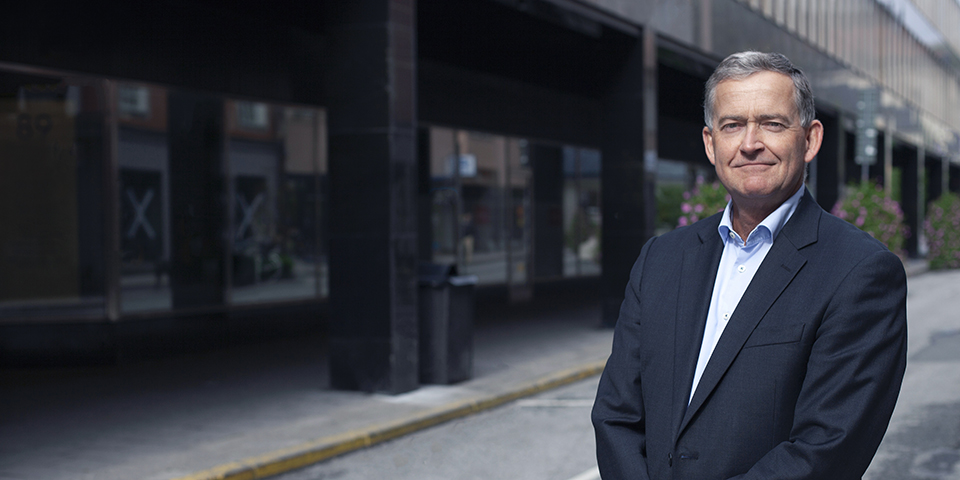Rapport: Making the EU Safer, Greener, more Competitive and Digitalised

Handelspolitiken kan användas i betydligt högre utsträckning för att EU ska bli grönare, säkrare, mer konkurrenskraftigt och mer digitaliserat. Kommerskollegiums rekommendationer till den nya EU-kommissionen kretsar kring dessa fyra områden.
Anders Ahnlid, generaldirektör, vad är det viktigaste Kommerskollegium vill skicka med till den nya kommissionen?
Internationell handel bidrar till ekonomisk säkerhet under fredstid och är en livlina under kris och krig. Vi står inför många utmaningar som geopolitiska konflikter, klimatförändringar och ökad protektionism – internationell handel spelar en viktig roll för att motverka deras negativa effekter.
Kommerskollegiums utredare har formulerat problembeskrivningar och rekommendationer inom fyra fokusområden, vad finns det för särskilda rekommendationer kopplat till handel och säkerhet?
En av dem handlar om att den nya EU-kommissionen måste säkerställa att EU:s globala konkurrenskraft inte undermineras av alltför långtgående investeringsgranskningar. EU måste självfallet ta hänsyn till de nya säkerhetsriskerna vi står inför, men vi vill betona att detta inte får bli på bekostad av fördelarna som legitima utländska direktinvesteringar ger såsom ökad produktivitet och innovation. Det är något som i förlängningen är viktigt för vår säkerhet.
Hur kan den nya kommissionen arbeta för att förbättra konkurrenskraften för de europeiska företagen?
En rekommendation är att ta bort alla MGN-tullar (mest gynnad nation) på råmaterial, insatsvaror och komponenter då detta skulle leda till mer motståndskraft, ökad transparens och minskad administrativ börda för EU-företag, men även för medlemsstaternas myndigheter.
En annan rekommendation handlar om att ta större hänsyn till handelspartners när den nya EU-kommissionen tar fram ny lagstiftning. På så sätt kan man förhindra att tekniska handelshinder (TBT) uppstår, vilket underlättar handeln till EU. En ytterligare rekommendation är att minska de administrativa kostnaderna som företag fått till följd av ny EU-lagstiftning.
Kommerskollegium har i en rad utredningar pekat på att handelspolitiken kan spela en betydligt större roll i klimatomställningen – vad kan kommissionen göra för att driva på i det arbetet?
Ett förslag är att den nya EU-kommissionen arbetar för att nå ett multilateralt avtal i WTO som förbjuder fossila bränslesubventioner då dessa ökar utsläppen och snedvrider handeln. Ett annat förslag är att EU-kommissionen både bilateralt och multilateralt arbetar för att förbättra marknadstillträdet för gröna tjänster.
När det gäller digitalisering, vad skulle den nya kommissionen kunna göra mer?
EU-kommissionen behöver stärka sina konsekvensanalyser innan de presenterar ny EU-lagstiftning inom det digitala området. Till exempel kan det handla om att ta hänsyn till hur lagstiftning påverkar EU-företag och deras leverantörer för att undvika att EU väljs bort som en möjlig handelspartner.
Till sist – vad hoppas du på att den nya kommissionen ska ta tag i allra först när det gäller handelspolitiken?
Först och främst måste den nya EU-kommissionen säkerställa att EU:s framtida handelspolitik är evidensbaserad och i linje med internationella åtaganden, särskilt WTO-avtalen. Handelspolitiken ska även bidra till ett öppet, transparent och inkluderande handelssystem som främjar hållbar handel och handelssamarbeten med länder utanför EU, inte minst utvecklingsländer.
